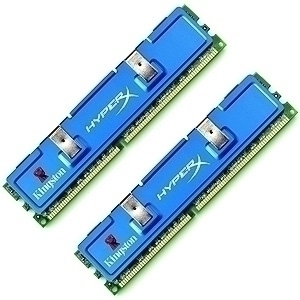Registered Memory
Registered memory modules have built-in registers on their address and control lines.
A register is a very small temporary holding area (usually 64 bits) for data.
These registers act as buffers between the CPU and the memory.
The use of registered memory increases system reliability, but also slows the system down a very slight bit as data must be moved through the registers.
Some systems do not support registered memory, others require registered memory, and many more give you the option to use registered or unregistered memory.
The use of registered memory is recommended for server-class systems. It is not useful on gaming systems.
Registered memory is also known as buffered memory. Unregistered memory is also known as unbuffered memory.



Comments - No Responses to “Registered Memory”
Sorry but comments are closed at this time.